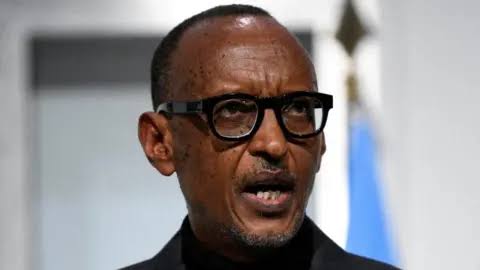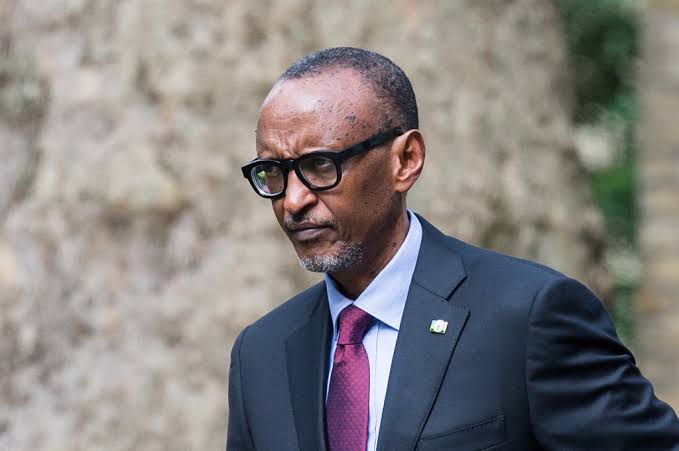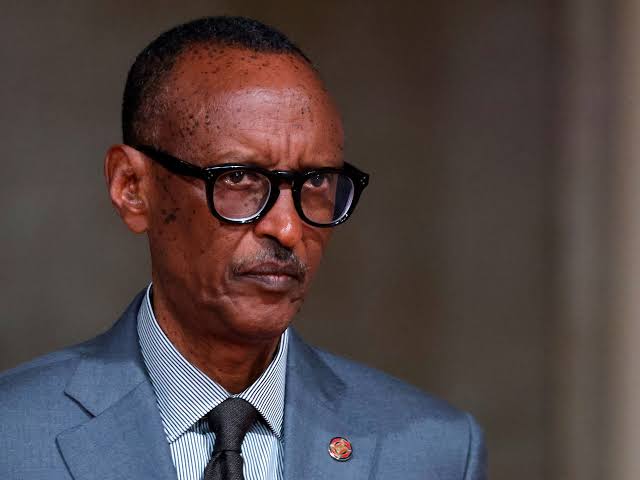Rwandan President Paul Kagame has been officially sworn in for a fourth term, following an overwhelming victory in last month’s election, where he secured more than 99 percent of the vote. The inauguration ceremony, held on Sunday in a packed 45,000-seat stadium in Kigali, drew several dozen heads of state and dignitaries from across Africa. Thousands of Rwandans also gathered early to witness the event, demonstrating the significant public support Kagame continues to enjoy after two decades in power.
Kagame’s re-election, while celebrated by many, has also sparked criticism from opposition groups and international observers who question the fairness of the electoral process. Despite these concerns, Kagame used his inauguration speech to emphasize his commitment to “consolidate national unity” and continue Rwanda’s development trajectory, which has been lauded for transforming the country into one of Africa’s most stable and economically successful nations.

Celebrations in Kigali: President Paul Kagame inaugurates his fourth term with overwhelming support.
Under Kagame’s leadership, Rwanda has seen significant progress since the devastating 1994 genocide, which claimed the lives of around 800,000 people. His government has been credited with achieving impressive economic growth, reducing poverty, and fostering a sense of national unity in a country once deeply divided along ethnic lines. The capital, Kigali, is often cited as one of Africa’s cleanest and most orderly cities, a symbol of the country’s rapid modernization.
However, Kagame’s near-total electoral victory has fueled ongoing debates about the state of democracy in Rwanda. Critics argue that the political environment under his rule has become increasingly repressive, with limited space for dissenting voices. Opposition figures have faced harassment, and some have been jailed or forced into exile. The overwhelming margin of Kagame’s win has led some to question the authenticity of the electoral process, raising concerns about the future of political pluralism in Rwanda.
Despite these criticisms, Kagame remains a popular figure within Rwanda, where many citizens credit him with bringing peace and stability to the nation after the horrors of the genocide. His supporters argue that Rwanda’s unique history requires strong leadership to maintain the fragile unity and continue the progress made over the past two decades. Kagame himself has often defended his government’s approach, emphasizing that Rwanda’s path to development must be shaped by its own circumstances, rather than following Western democratic models.

Paul Kagame sworn in for a fourth term, securing over 99% of the vote in a grand Kigali ceremony.
As Kagame embarks on his fourth term, he faces the challenge of maintaining Rwanda’s impressive economic growth while addressing the calls for greater political openness. In his inauguration speech, Kagame pledged to continue working toward national unity and development, signaling his intent to build on the successes of his previous terms. However, the international community and local opposition will be watching closely to see how his government responds to the growing demands for political reform.

Rwanda’s President Paul Kagame takes the oath for another five years, with dignitaries and thousands in attendance.
In conclusion, President Paul Kagame’s fourth term in office begins with a complex mix of celebration and criticism. While his leadership has undeniably transformed Rwanda, questions about the country’s democratic credentials persist. As Kagame continues to consolidate power, the balance between maintaining stability and fostering a more inclusive political environment will be crucial for Rwanda’s future.